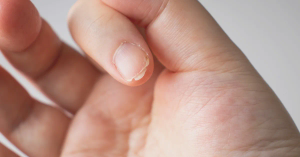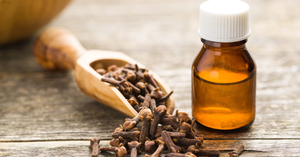What is Hyperhidrosis?
Hyperhidrosis is a condition that causes excessive sweating beyond what the body needs for temperature regulation. In children, it can affect the palms, soles, underarms, and face, impacting their daily life, confidence, and even social interactions. While sweating is a natural process, excessive sweating can indicate an underlying medical issue.
Normal vs. Abnormal Sweating in Children
Normal Sweating:
• Occurs during physical activities, hot weather, or emotional stress.
• Typically seen in areas like the forehead, underarms, and back.
• Reduces once the trigger (heat, exercise, or stress) subsides.
Abnormal Sweating (Hyperhidrosis):
• Excessive sweating even in cool environments.
• Sweating occurs without any physical exertion or emotional stress.
• Affects specific areas like hands, feet, and underarms disproportionately.
• Persists throughout the day, disrupting daily activities.
• Causes skin irritation, foul odor, or infections due to prolonged moisture exposure.
Clinical Features of Hyperhidrosis in Children
Hyperhidrosis can manifest in different ways, depending on its severity and the affected area:
1. Primary Focal Hyperhidrosis:
• Localized excessive sweating, commonly in the palms, soles, underarms, and face.
• Usually starts in childhood or adolescence.
• Can be hereditary.
2. Secondary Generalized Hyperhidrosis:
• Excessive sweating affecting the entire body.
• Often caused by an underlying medical condition such as infections, thyroid disorders, or neurological issues.
• Can occur at any age.
What Age Group is Mostly Affected?
• Primary hyperhidrosis usually starts in childhood or early adolescence (around 6–12 years).
• It can persist into adulthood if not addressed.
• Secondary hyperhidrosis can occur at any age and is often linked to other medical conditions.
Signs and Symptoms of Hyperhidrosis in Children
As a parent, you might notice:
• Constantly damp or wet palms, feet, or underarms.
• Clothing soaked with sweat, even in normal temperatures.
• Child avoiding social interactions or physical touch due to embarrassment.
• Increased skin infections, rashes, or foul odor due to persistent moisture.
• Difficulty holding objects, writing, or playing due to sweaty hands.
When to See a Doctor?
If your child’s sweating interferes with their daily activities, self-esteem, or causes skin infections, it’s best to consult a doctor. The type of specialist depends on the suspected cause:
• Pediatrician: Initial assessment and diagnosis.
• Dermatologist: If the issue is skin-related.
• Endocrinologist: If an underlying hormonal or metabolic condition is suspected.
• Neurologist: In rare cases, if neurological disorders are suspected.
Managing Hyperhidrosis in Children
If your child is diagnosed with hyperhidrosis, treatment may include:
• Topical treatments: Aluminum chloride-based antiperspirants.
• Oral medications: Prescription medications to reduce sweating.
• Botox injections: For severe cases affecting specific areas like palms and underarms.
• Lifestyle modifications: Wearing breathable fabrics, changing clothes frequently, and maintaining proper hygiene.









